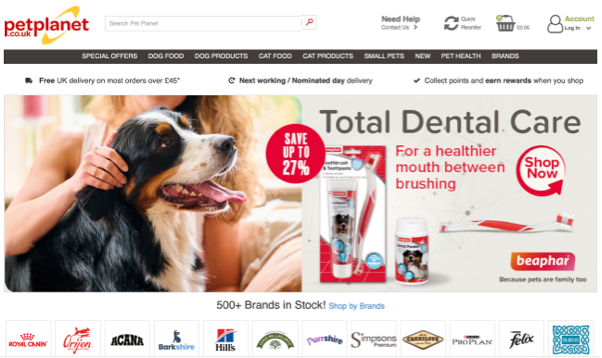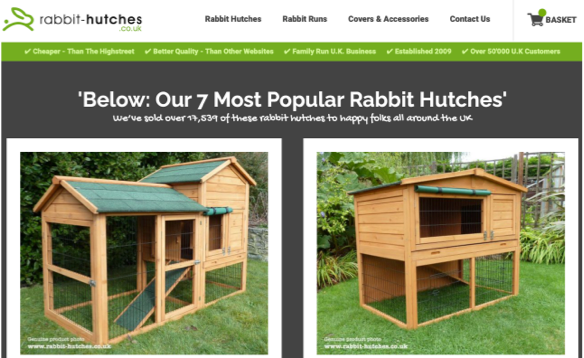
In today’s digital age, we have access to an almost infinite number of choices when it comes to shopping online.
From clothing to electronics to food, the sheer number of options can be overwhelming. This is known as the paradox of choice. While it may seem like having more options is always better, research has shown that too much choice can actually lead to decision paralysis and reduce conversion rates.
What is the paradox of choice?
The paradox of choice is the phenomenon where having too many options can actually make it harder to make a decision. It was first popularized by psychologist Barry Schwartz in his book “The Paradox of Choice: Why More Is Less”.
Schwartz argues that while having some choice is necessary for individual freedom and autonomy, too much choice can lead to anxiety, stress, and decision fatigue.

How does the paradox of choice affect ecommerce?
There are 2 ways that too much choice in your online store can affect your business.
1 – in the world of ecommerce, the paradox of choice can have a significant impact on conversion rates. When presented with too many options, shoppers may become overwhelmed and abandon their purchase altogether. This can lead to a decrease in sales and revenue for online retailers.
2 – having too many varied products can reduce a search engine’s understanding of a site’s relevancy towards a set of target keywords.
If an ecommerce site has too many different types of products, it may be difficult for search engines to understand what the site is about and which keywords are most relevant. This can negatively impact the site’s search engine rankings and make it harder for potential customers to find the site.
How important is site relevance to users?
When you are conducting a Google search, you are expecting high quality, highly relevant results. You want to click to a page whose content immediately matches your search term.
If that fails, you click back to the other results.
If there are too many choices of ‘black shirt’, you’ll go back and refine your search term. If there are images of children clothes or of suits and dresses, you’ll go back and revise your search term.
Users demand quick and direct answers. Unless you have big SEO and design budgets to optimise your category landing pages, your site is going to frustrate the user.
How important is site relevance in SEO?
When it comes to ecommerce SEO, the concept of relevancy is crucial to success. Relevant search terms, products, and imagery can all help to improve conversion rates and create a better overall shopping experience for customers.
This is where niche web stores come in.
Let’s compare 2 businesses :
– a pet supplies online supermarket store, and
– a business with animal-specific web stores such as cat, dog, rabbit, and bird.
While the bigger pet supplies store may offer a wider selection of products, it can be overwhelming for shoppers who are looking for something specific. (see below)
On the other hand, a niche web store that focuses specifically on rabbit supplies, for example, can offer a more targeted selection of products that are relevant to the shopper’s needs.
Creating niche web stores is better for SEO results
When it comes to search engine optimization (SEO), niche web stores can be particularly effective. By targeting specific search terms, these stores can improve their visibility in search engine results pages (SERPs) by attracting more relevant traffic.
A niche web store focuses on a specific product or category, offering a smaller, curated selection of products. This can make it easier for shoppers to find what they are looking for and make a decision. By offering a more focused selection of products, niche web stores can also improve their search engine rankings by targeting specific keywords and becoming more relevant to a particular audience.
For example, if a shopper is looking for “rabbit hay feeder,” a niche rabbit supplies store is more likely to appear in the top results than a pet supplies store that offers a wider range of products.
To combat the paradox of choice and improve conversion rates, many ecommerce sites are creating niche web stores.

“But what about Amazon!?” – I hear you say
If you have the marketing budgets, the employee budgets and 25 years – then the Amazon supermarket model is for you.
I’m going to assume that you don’t. I’m also going to remind you that Amazon grew exponentially both one category at a time, and also during times when online competition was phenomenally lower.
Approx 70% of online buying journeys begin with a Google search. And Google loves relevance. If you can develop a high quality, highly relevant web store that addresses user needs then your chances of ranking higher on Google increase.
Contrast this with merchants who load everything they sell into one website – density and relevance is reduced for one set of keywords.
Creating Niche Stores is better for Google Ads
Paid advertising such as Google Ads and Bings Ads, is a necessary part of the online marketing portfolio. But to get best value for your marketing buck, you need to refine and define to ensure that you are only speaking to your prospects and delivering them the best experience.
Google have made it clear that more relevant campaigns (that are better for user experience) will result in lower costs, higher positions and better campaigns.

Reducing choice can increase your conversion rates
Smaller niche micro web stores can be better for basket conversion because they have relevant imagery, relevant search terms, and more relevant products. In other words, precisely what the user is expecting and wanting to see.
By specializing in a specific product or category, these stores can create a stronger emotional connection with shoppers, and offer a more personalized shopping experience.
A rabbit supplies store, for example, can feature images of rabbits using the products, which can be more appealing to shoppers who are specifically looking for items for their rabbits. This can create a stronger emotional connection with the shopper and increase the likelihood of a purchase.
If you’re shopping for rabbit hutches, which landing page below would you prefer?


Niche stores can build brand identity
Niche web stores can also help to build a stronger brand identity. By specializing in a specific product or category, ecommerce sites can become known as experts in that area and build a loyal customer base.
If you wanted expert advice on music system speakers or televisions, you might go to Richer Sounds – because they have built a reputation for being specialists in that area.
If you need to trust the company selling you vitamins, you might purchase from Vitabiotics because of the reputation they have built up
By specializing in a specific product or category, these stores can provide expert advice and recommendations to shoppers. For example, a rabbit supplies store can offer tips on caring for rabbits and suggest complementary products that the shopper may not have considered.
Brand equity (not the same as brand awareness) is what defines market leaders from their competition. Getting it right means shoppers are 9 times more likely to repeat purchase from you, as explained by Marketing Evolution in their blog on Brand Equity: What it is, and why it is key for your business.
Conclusion
The paradox of choice is a real phenomenon that can have a significant impact on ecommerce.
Too many options can lead to decision paralysis and reduce conversion rates. By creating niche web stores with a more focused selection of products, ecommerce sites can
- improve their search engine rankings
- build a stronger brand identity
- reduce paid advertising costs and ultimately
- increase sales and revenue
So, the next time you’re selling online, remember that sometimes less is more.

As the Founder of Shopit, Adam drives the overall vision and responsibility for the company. He maintains contact and links with many clients in order to understand how best to evolve the Shopit platform